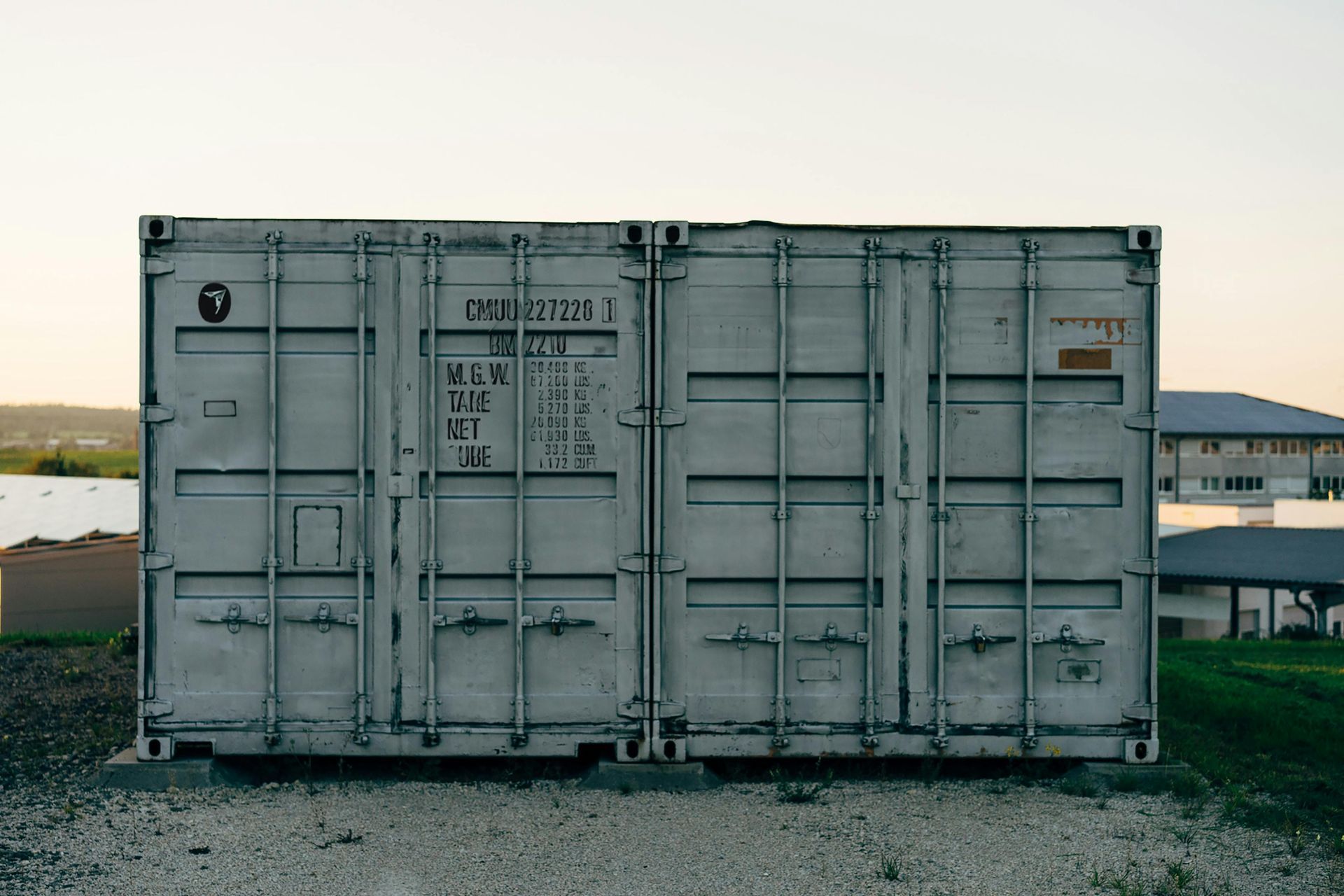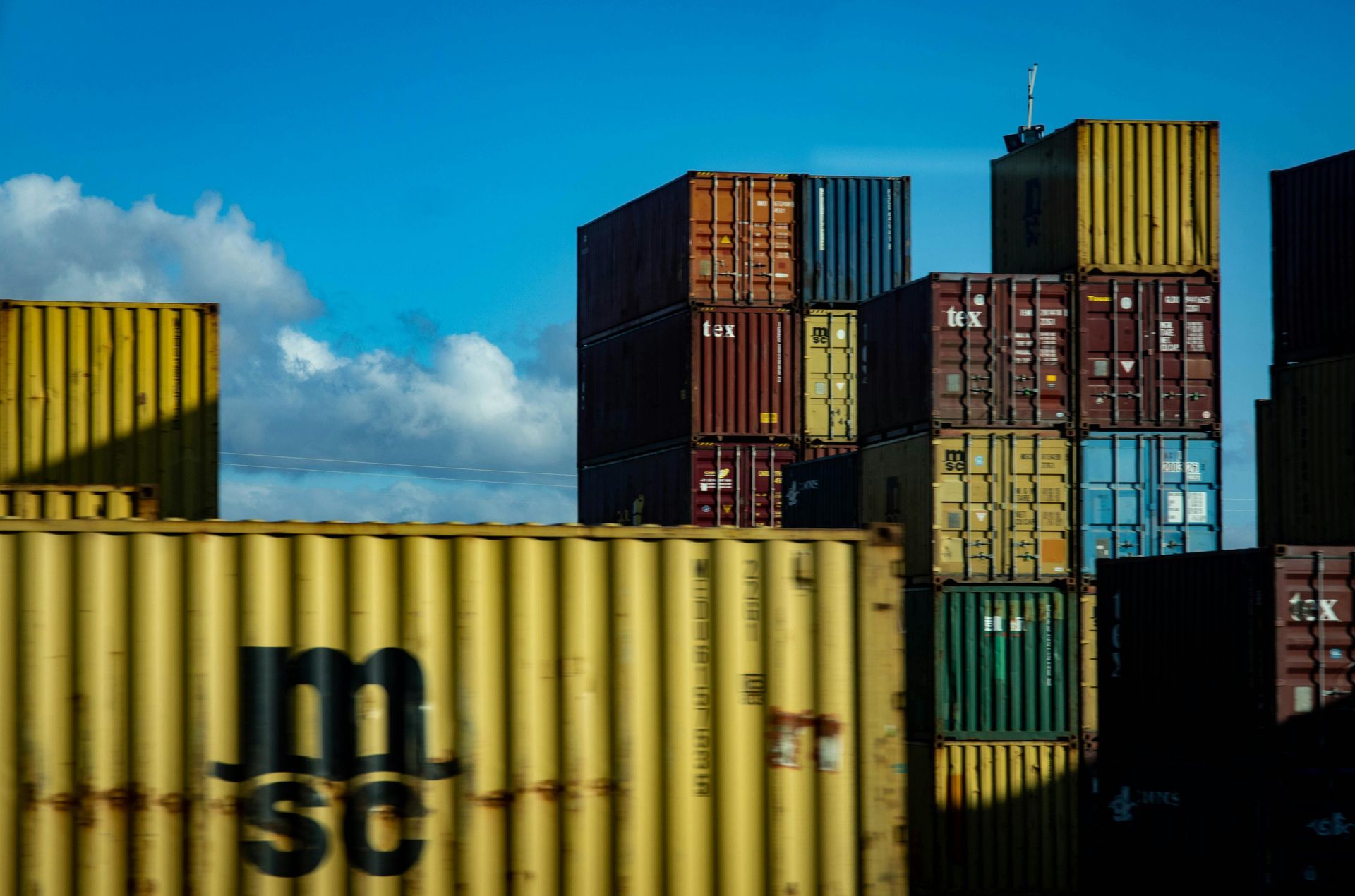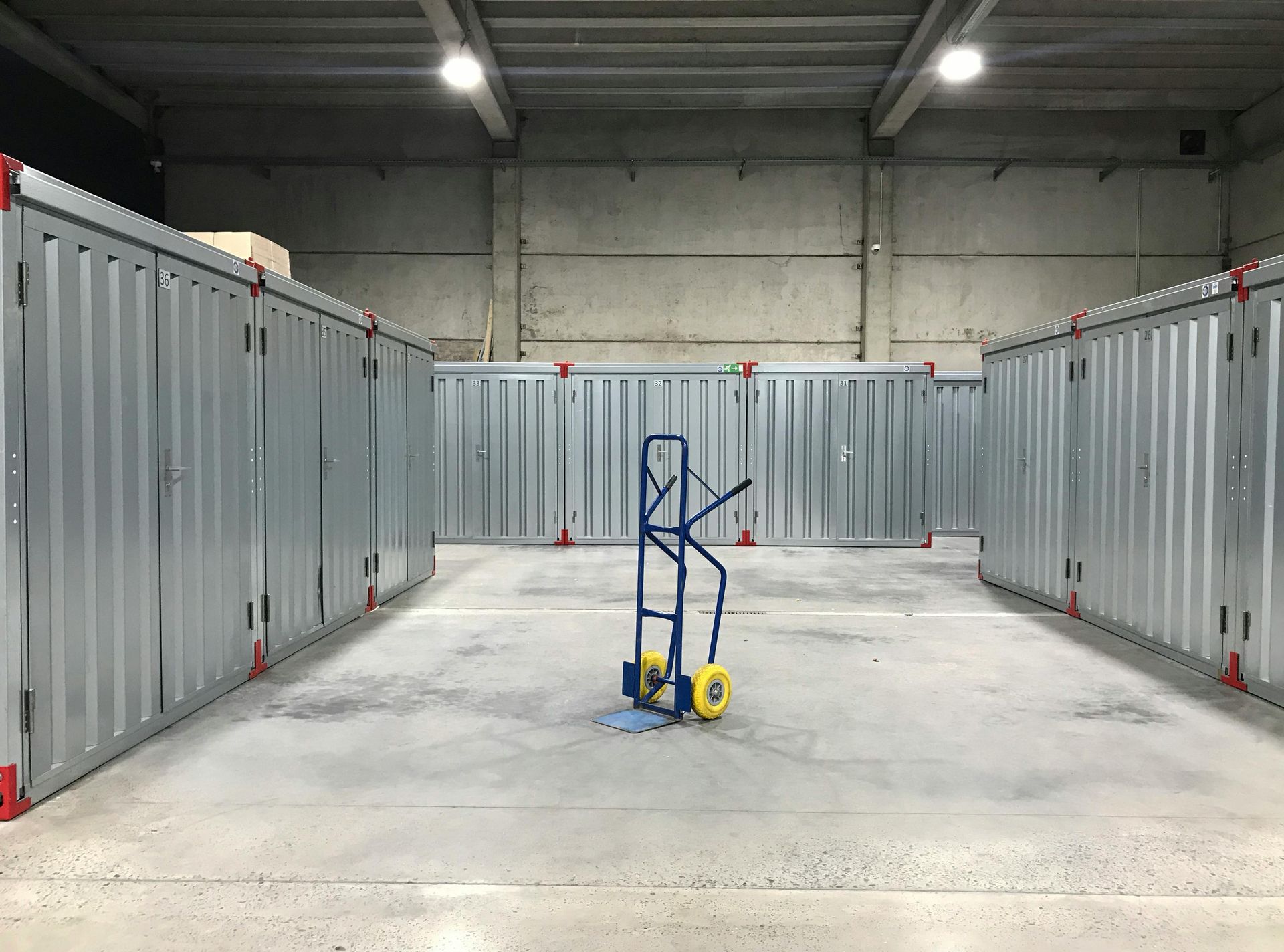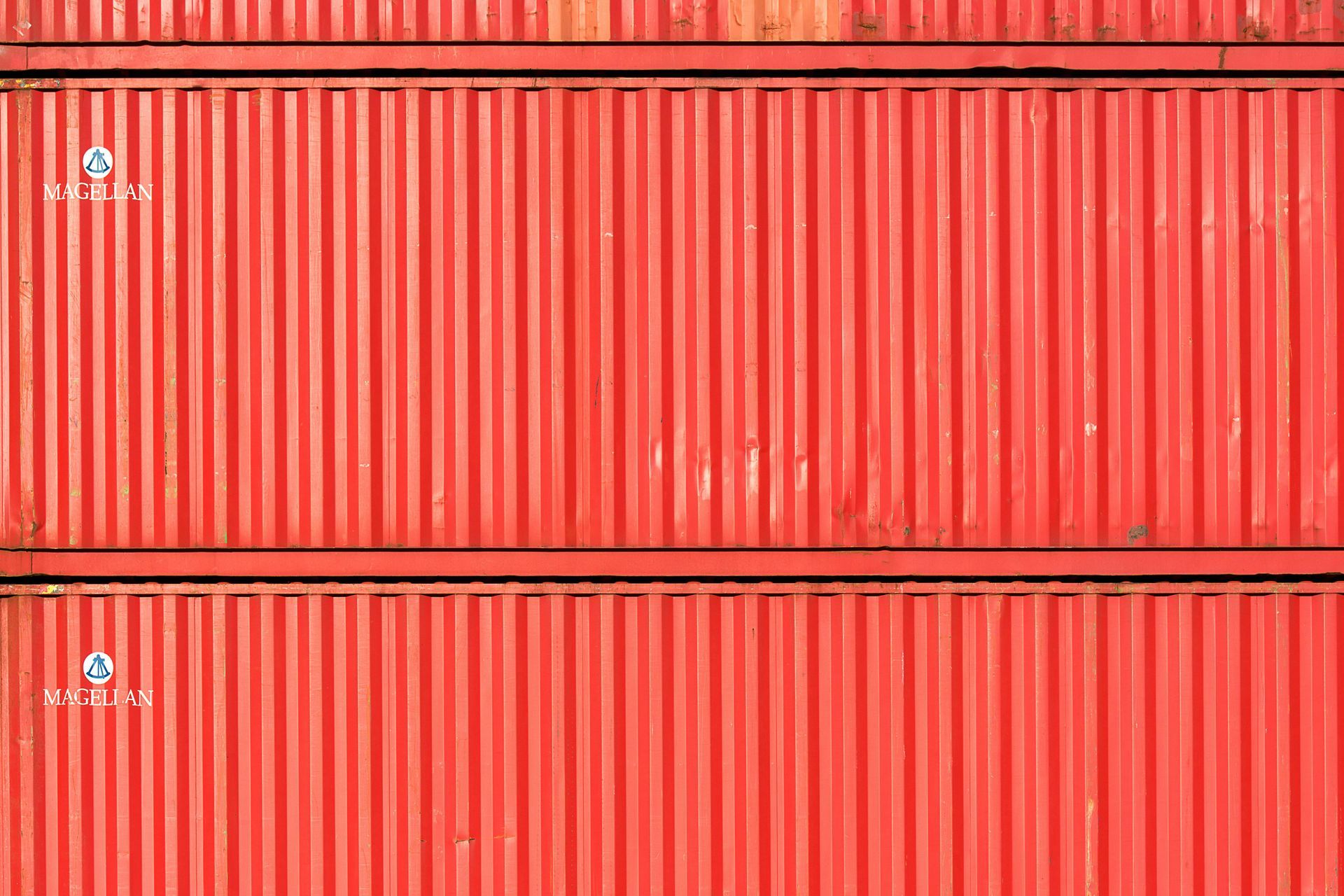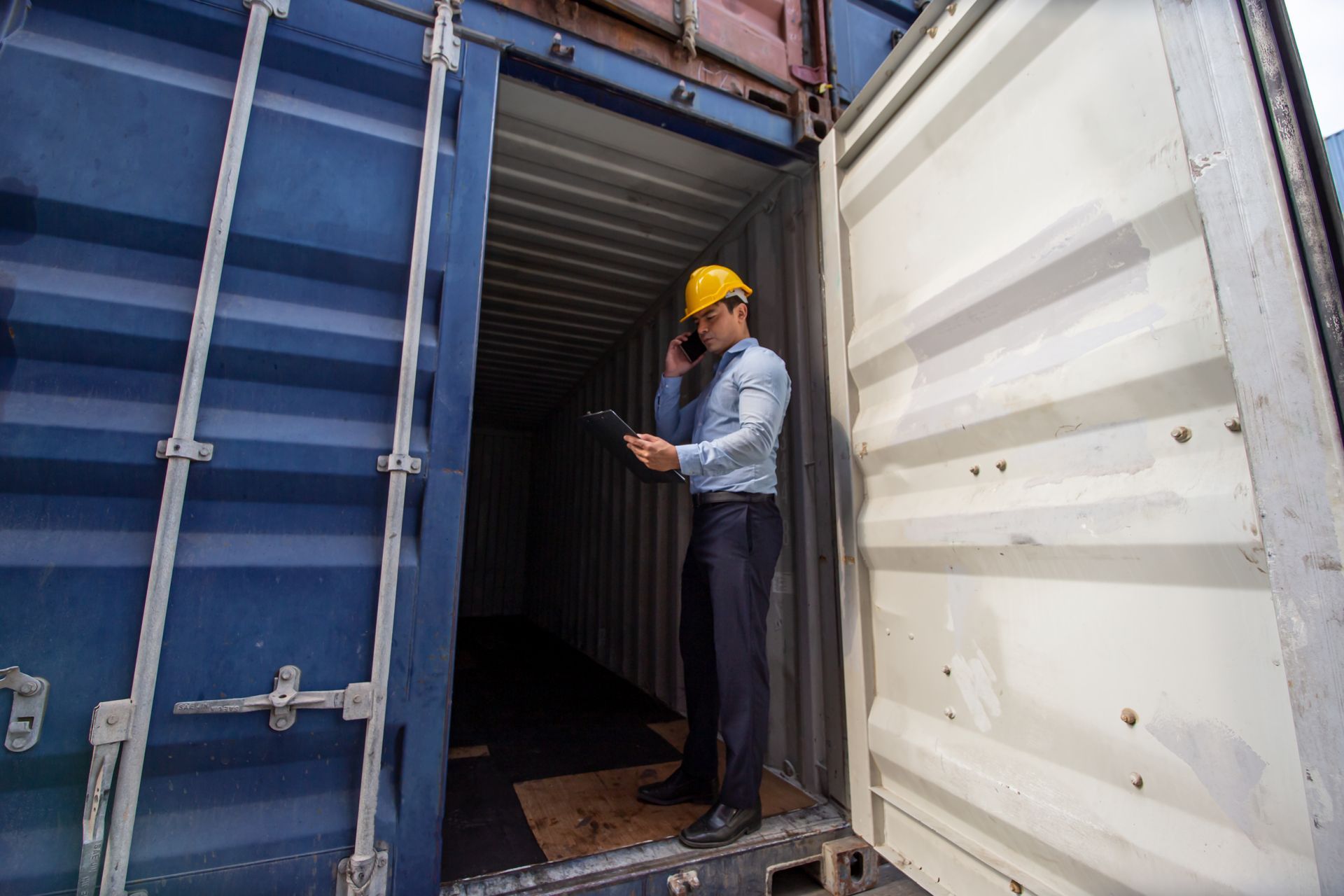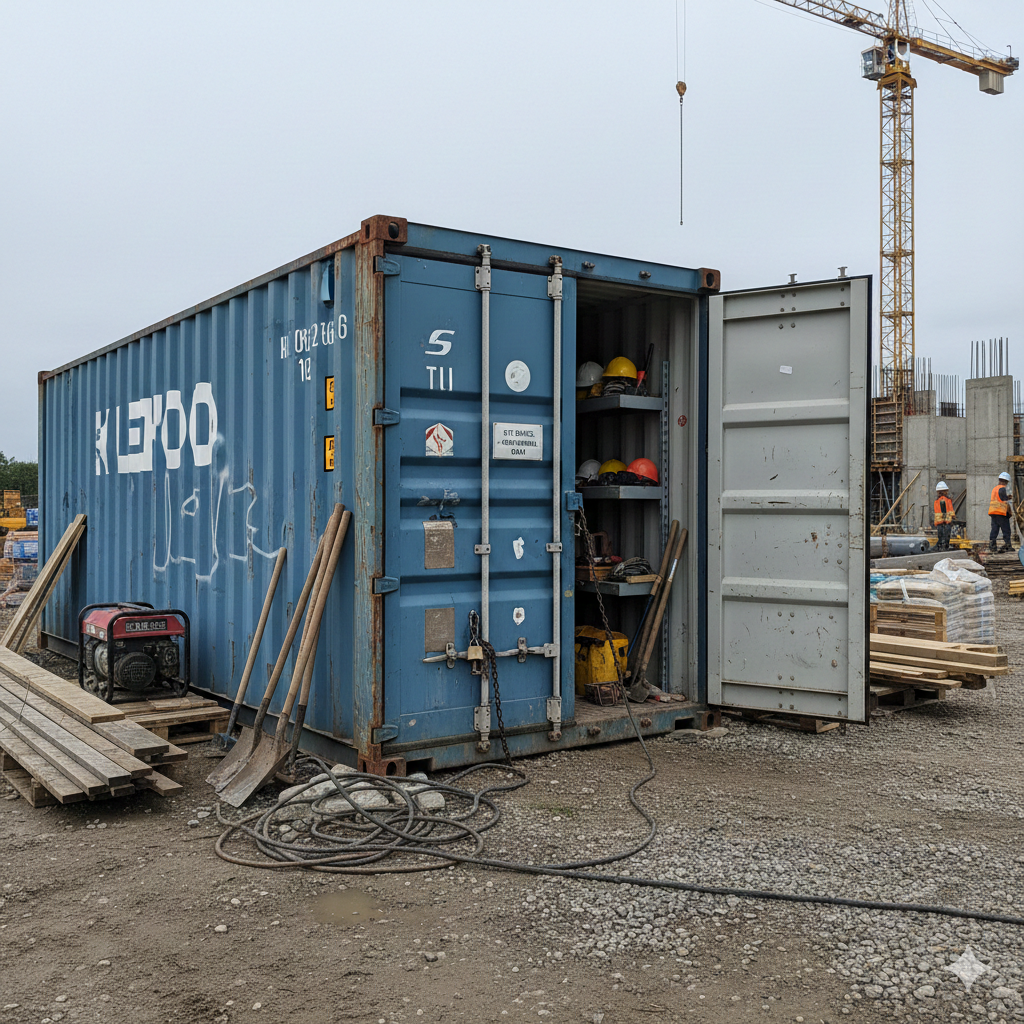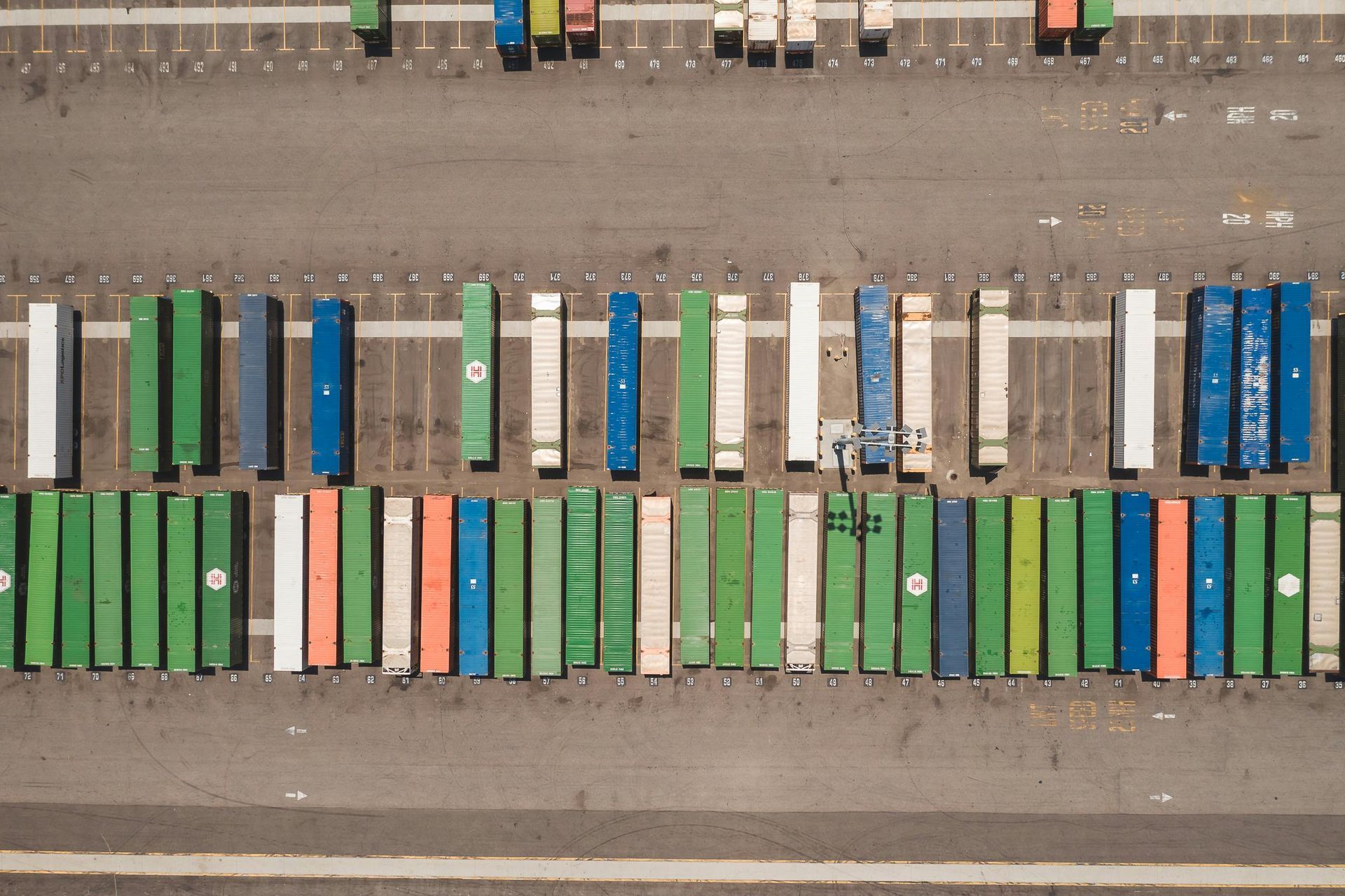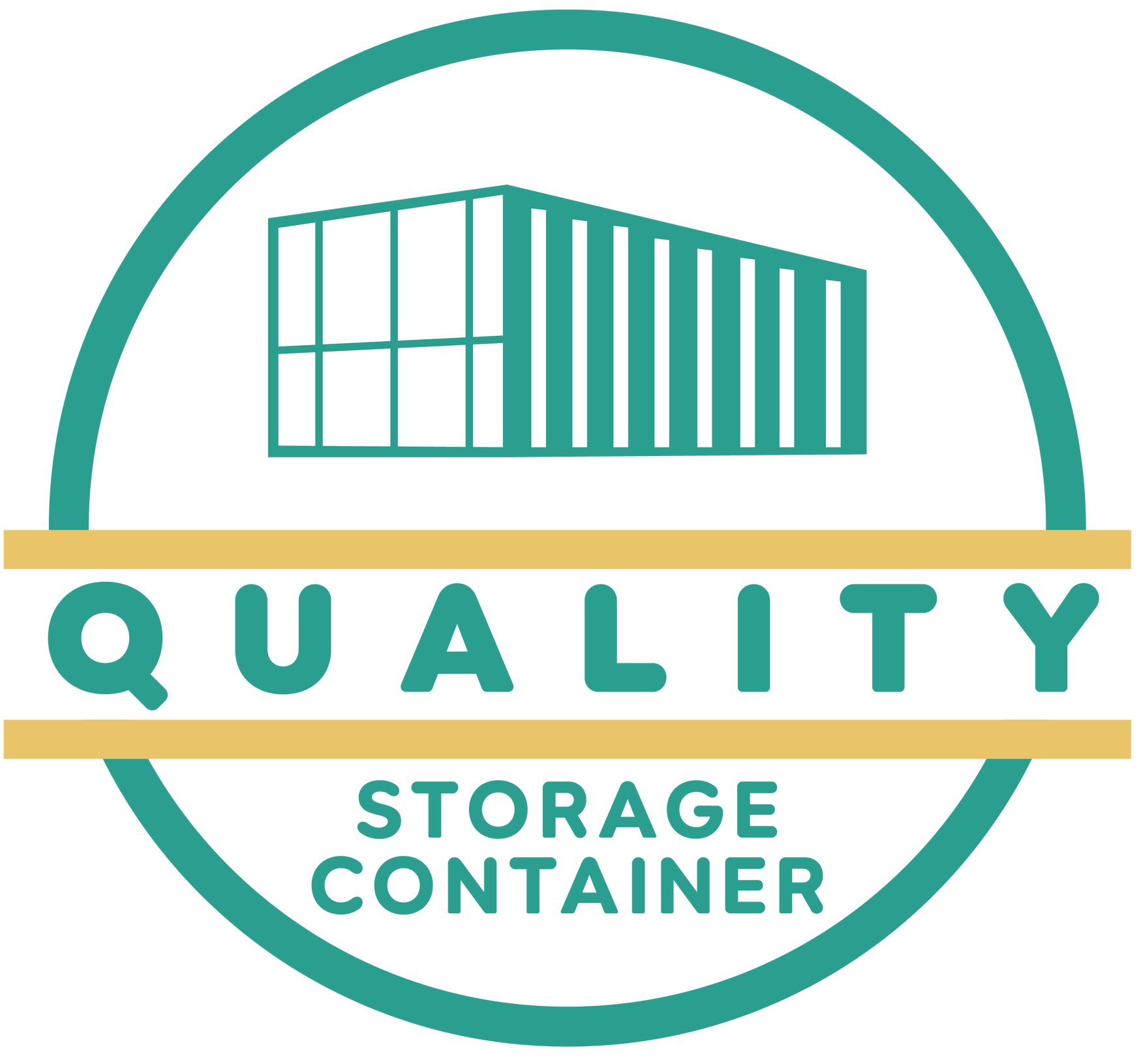Why Storage Containers for Construction Sites Are in High Demand
Construction sites across the United States face increasingly complex challenges with secure storage, equipment protection, and workspace organization as projects grow larger and more sophisticated.
Storage containers for construction sites have emerged as the definitive solution, offering unmatched versatility, security, and cost-effectiveness for contractors nationwide. From protecting expensive tools and materials overnight to creating temporary office spaces, break rooms, and specialized storage areas, these
robust steel structures have fundamentally revolutionized how construction companies approach on-site logistics and storage management, driving unprecedented demand across residential, commercial, and infrastructure sectors.
Key Takeaways
- Weather-resistant steel construction protects valuable equipment and materials from theft and environmental damage
- Portable storage solutions can be relocated as projects progress, maximizing efficiency and reducing setup costs
- Multiple size options accommodate everything from hand tools to heavy machinery storage requirements
- Conversion capabilities allow containers to serve dual purposes as offices, break rooms, or specialized workspaces
- Rental and purchase options provide flexible financial solutions for projects of any duration
- Standardized dimensions ensure compatibility with existing transportation and placement equipment
Security and Protection Drive Primary Demand
Construction sites are prime targets for theft, with equipment losses costing the industry billions annually. Traditional storage methods like job site trailers or temporary sheds often leave valuable tools and materials vulnerable to both criminal activity and weather damage that can halt projects for days or weeks.
Modern construction equipment represents substantial investments that require robust protection strategies. Power tools, GPS systems, laser equipment, and specialized machinery need secure storage solutions that traditional methods cannot provide. Steel storage containers for sale provide fortress-like protection with multiple integrated security advantages that traditional storage solutions cannot match.
Comprehensive Security Features:
- Heavy-duty steel construction resists cutting tools and advanced prying attempts
- Integrated lockbox systems protect padlocks from bolt cutters and tampering
- Solid steel doors eliminate visibility into container contents while preventing forced entry
- Weather-tight seals prevent moisture damage to sensitive electronic equipment
- Fire-resistant materials protect against accidental ignition sources
- Ground-level accessibility eliminates climbing hazards while maintaining security
- Optional alarm systems and access control integration for enhanced monitoring
These security features address insurance requirements while dramatically reducing equipment replacement costs and project delays. Many contractors report significant premium reductions when implementing documented secure storage protocols using certified containers. Project managers can focus on construction activities rather than constantly worrying about equipment security.
Beyond security, containers offer environmental protection that extends equipment lifespan and maintains material quality. Sealed environments protect sensitive electronics, prevent rust formation on metal tools, and maintain optimal conditions for chemical storage according to manufacturer specifications.
Versatility Meets Diverse Construction Needs
Modern construction projects require adaptable storage solutions that evolve with changing site requirements, seasonal conditions, and project phases. Metal storage container for sale options provide unprecedented flexibility while maintaining consistent security and weather protection throughout the project duration.
The standardized construction of shipping containers creates universal compatibility with transportation equipment and lifting machinery used across the construction industry. This standardization enables rapid deployment and reconfiguration as project needs change, making containers invaluable for dynamic construction environments.
Primary Construction Site Applications of Shipping Containers
- Secure tool and equipment storage for daily operations and overnight protection
- Weather-resistant material storage protecting lumber, electrical components, and supplies
- Climate-controlled temporary office spaces with electrical modifications
- Worker break rooms and changing facilities improving site morale
- Parts inventory management for specialized equipment requiring organization
- Document storage in waterproof, fire-resistant environments
- First-aid stations and emergency supply storage for safety compliance
- Generator and fuel storage with proper ventilation and safety protocols
Specialized Conversion Options
- Mobile workshops with integrated electrical systems and tool organization
- Quality control testing areas for materials and environmental compliance
- Equipment maintenance bays with proper drainage systems
- Security guard stations with visibility windows and communication equipment
- Training centers for safety certification and equipment operation
- Technology hubs housing computer systems and project management equipment
The modular nature of shipping containers allows contractors to create custom configurations. Multiple units can be combined for larger storage needs, separated for distributed coverage, or stacked for vertical optimization. This adaptability proves essential for projects spanning months or years with evolving requirements and changing site layouts.
Seasonal adaptability represents another crucial advantage. Containers equipped with insulation and climate control systems maintain consistent internal conditions regardless of external weather, protecting temperature-sensitive materials and enabling year-round construction activities.
Cost-Effectiveness Drives Adoption
Construction budgets demand efficient resource allocation, making cost-effective storage solutions essential for project profitability and competitive bidding capabilities. Storage containers offer compelling financial advantages over traditional alternatives through direct cost savings and operational efficiencies that impact overall project economics.
Traditional storage alternatives like constructing temporary buildings or renting warehouse space create significant overhead expenses that buying or renting containers eliminates through their all-in-one functionality and mobility advantages. The upfront investment in container storage typically pays for itself within the first few months of use.
Comprehensive Financial Benefits
Direct Cost Savings:
- No construction materials or labor costs for temporary storage buildings
- Elimination of permitting fees and inspections for temporary placement
- Reduced transportation costs through consolidated on-site storage
- Lower insurance premiums through improved security and risk reduction
- Minimal maintenance requirements compared to traditional structures
- Strong resale value preservation for purchased units• No utility connection costs for basic storage applications
Operational Efficiency Gains:
- Dramatic reduction in time spent retrieving tools from off-site locations
- Improved worker productivity through immediate equipment access
- Decreased fuel costs and vehicle wear from eliminated transportation runs
- Reduced project delays caused by missing tools or materials
- Enhanced inventory management through organized storage systems
- Improved safety records through proper equipment organization
The mobility factor significantly impacts project economics. Containers move efficiently between job sites using standard transportation equipment, eliminating redundant storage investments for companies managing multiple projects. This portability extends container utility beyond individual project timelines, creating long-term value.
Financial flexibility represents another advantage through various acquisition options. Companies can purchase containers for long-term use, lease them for specific durations, or utilize rent-to-own programs. This flexibility allows contractors to match storage investments with cash flow patterns.
Regulatory Compliance and Safety Standards
Construction sites must meet increasingly stringent safety and environmental regulations. Compliance failures can result in significant fines and work stoppages. Proper storage protocols often determine project approval from regulatory authorities.
Shipping containers for sale help contractors meet compliance requirements through standardized construction specifications and certified materials. These units typically exceed local building codes while providing comprehensive documentation for permit applications.
Safety and Compliance Advantages
- Certified structural integrity ratings for wind and seismic loads
- Fire-resistant construction materials meeting safety standards
- Proper ventilation options for hazardous material storage
- Standardized dimensions compatible with crane operations
- Environmental protection preventing chemical spills and contamination• Minimal site impact during installation and removal
Environmental regulations increasingly require controlled storage for materials that could impact soil or water supplies. Containers provide sealed environments that prevent contamination while maintaining convenient access for daily operations and inspections.
Market Trends Shaping Future Demand
The evolution of the construction industry continues to drive innovation in storage solutions as projects become more complex, regulations more stringent, and efficiency demands more critical. Several significant trends indicate sustained growth in container demand across various market segments from residential development to major infrastructure projects.
Federal infrastructure investment programs nationwide create long-term projects requiring portable, scalable storage solutions. Urban development projects face increasingly severe space constraints that make efficient storage essential for timeline adherence. Green building initiatives emphasize reusable materials and sustainable practices that align with container utilization philosophy.
Technology Integration Trends
Smart container technology transforms traditional storage into integrated asset management systems:
- GPS tracking systems providing real-time location monitoring and theft prevention
- Climate control monitoring ensuring optimal storage conditions for equipment
- Access control systems tracking personnel entry and exit for security analysis
- Inventory management integration connecting stored items with project software
- Remote monitoring capabilities allowing off-site oversight of storage conditions
- Energy management systems optimizing power consumption for modified containers
Emerging Applications
- Mobile fabrication shops equipped with welding and metalworking tools
- Climate-controlled environments for sensitive equipment and testing instruments
- Electric vehicle charging stations for construction equipment and worker vehicles
- Emergency response supply storage for disaster recovery and rapid deployment
- Training centers providing safety certification and equipment operation instruction
- Medical facilities offering first aid treatment for large construction projects
The integration of renewable energy systems into container modifications represents a growing trend, with solar panels and battery systems enabling off-grid operations. This capability expands container utility to projects without existing electrical infrastructure while supporting sustainability initiatives.
Frequently Asked Questions
What is the average delivery time for shipping containers in California?
Delivery times typically range from 3-10 business days, depending on container availability and delivery location. Remote areas may require longer lead times due to transportation logistics.
How much does container delivery cost across California?
Delivery costs vary from $200-800 or more, depending on distance, delivery method, and site accessibility requirements. Urban areas generally have lower delivery costs than remote locations.
What container sizes are most commonly available from California dealers?
20-ft and 40-ft containers in standard and high-cube configurations represent the most readily available options. Specialized sizes may require longer lead times or special ordering.
Do shipping container dealers offer financing options for purchases?
Many established dealers provide financing options including lease-to-own programs and payment plans. Credit requirements and terms vary between dealers and transaction amounts.
What warranty coverage should I expect on used shipping containers?
Used container warranties typically range from 30 days to one year depending on dealer policies and container condition. New containers may include longer manufacturer warranties.
Final Thoughts
Selecting a reliable shipping container dealer in California requires careful evaluation of multiple factors, including reputation, pricing, service capabilities, and geographic coverage. Success depends on matching dealer strengths with your specific project requirements while ensuring compliance with local regulations. Take time to research thoroughly, compare options systematically, and verify dealer credentials before making commitments. The right dealer partnership provides not just containers, but ongoing support that contributes to project success and long-term satisfaction.
Tired of equipment theft and weather damage? Secure your construction site today with weatherproof steel containers built to last.
Reference:
https://www.researchgate.net/publication/340701552_Upcycling_shipping_containers_as_building_components_an_environmental_impact_assessment

